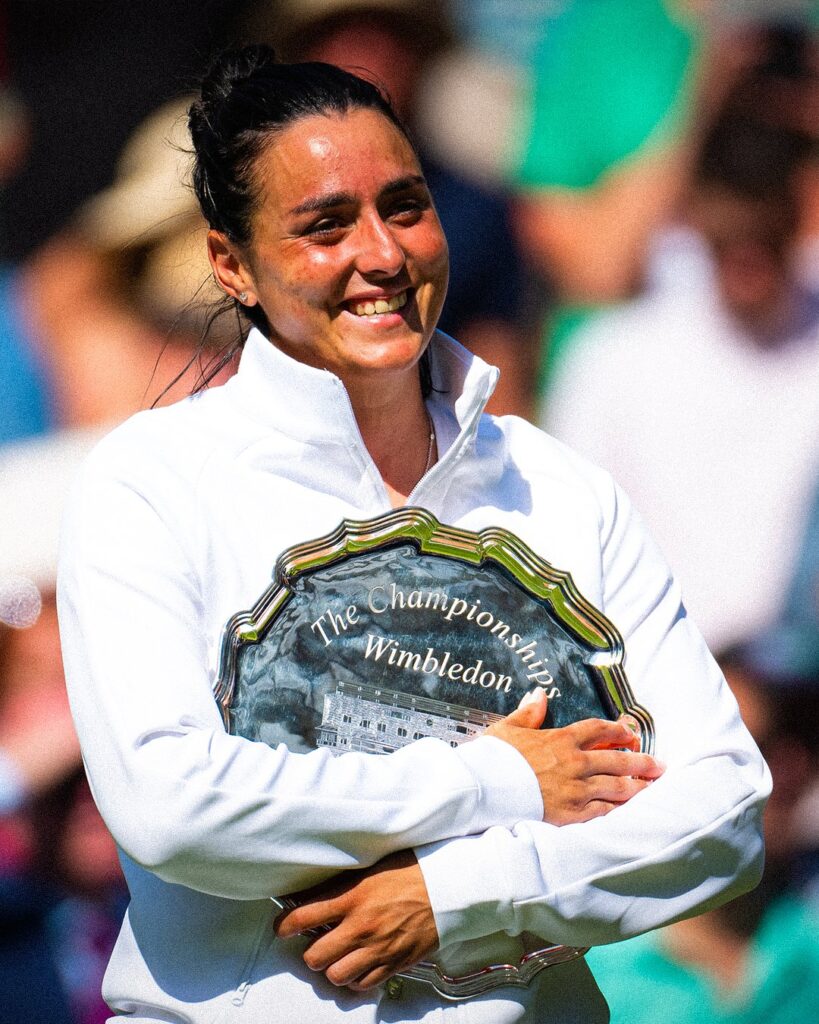
By Kemi Osukoya
July 9, 2022
FOR THE FIRST TIME since 1962, history was made on Saturday in Wimbledon when two modestly known female tennis players, Tunisian Ons Jabeur and Kazakhstani Elena Rybakina, made their maiden appearances against each other at the All England Club’s Center court in a riveting Ladies’ Singles championship final that left the world titillate and inspired by the two players.
The fan favorite and a darling of this year’s Wimbledon Tennis Championship, 27 year-old tennis star Ons, who became the first African and first Arab woman to play in the Open Era at Grand Slam final, has not only fulfilled her dream of making it to the final two and playing on the same tennis court as her idols Serena Williams, Roger Federer and Andy Roddick, she is inspiring young and old people from all racial identities around the world with her talent, streaky games, humility, values and skills.
Her childhood dream was to play in the French Open. She won her first major tournament title in 2011 in the French Open Juniors and then set her sight higher when she reached the quarter finals last year at the Wimbledon tournament.
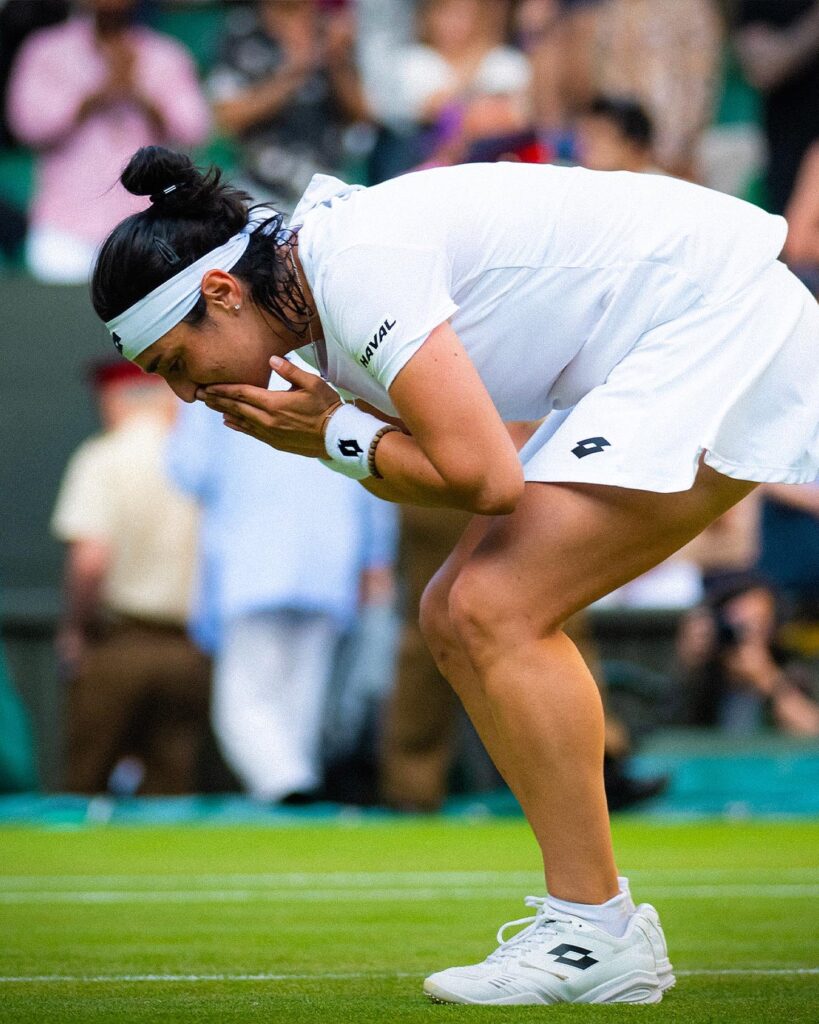
“We didn’t have any grass court in Tunisia so I couldn’t imagine being at Wimbledon when I was young but it became a dream when I reached the quarterfinals last year because I enjoyed being here and enjoyed everything about Wimbledon, so from then it was a target for me to come back and win here,” Jabeur told BBC News ahead of the Saturday’s Wimbledon Championship Ladies’ Singles final game.
Once inspired by fellow tennis players like the Williams sisters, Martina Navratilova, Simona Halep, Roger Federer and Andy Roddick who won championships at the court, she’s now part of the Wimbledon tradition.
““I want to be a champion and a member of the All England Club. I love the history and the traditions, like the all-white kit and everybody eating strawberries, it is just an amazing occasion. I love the crowd here, I love how passionate they are about sport and how passionate they are about tennis. The spectators are really respectful and they clap every great point, no matter who is playing. The energy is incredible,” said Jabeur.
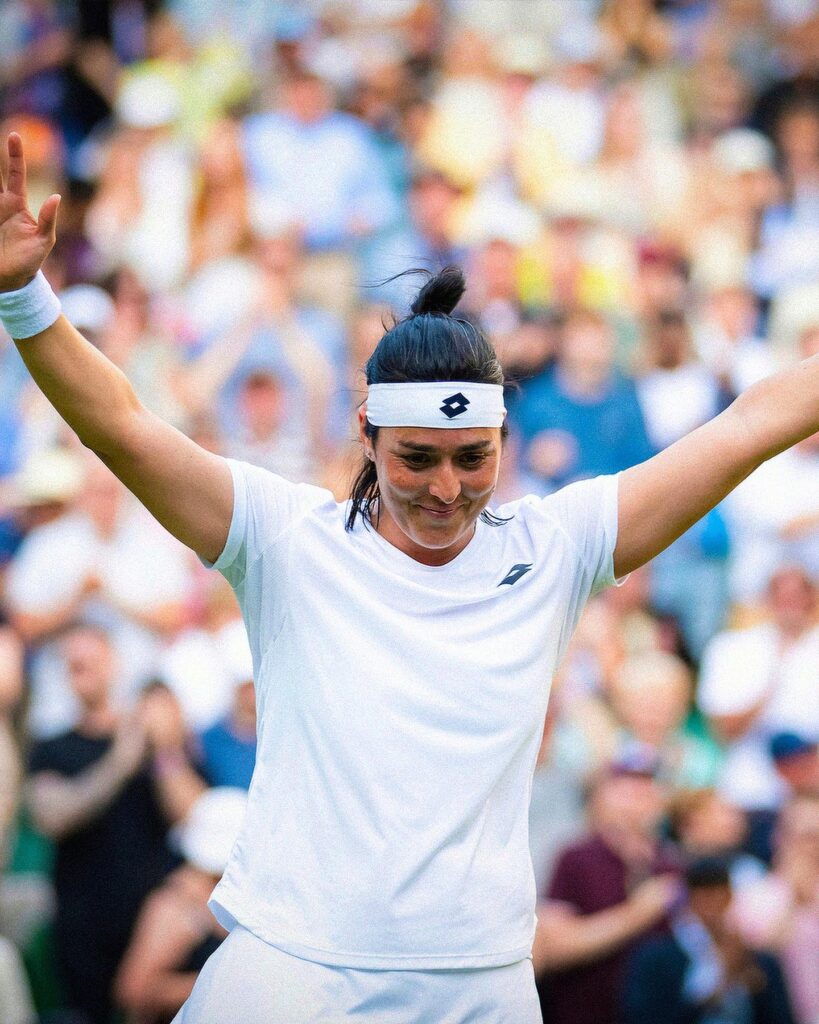
That incredible energy is reverberating beyond the Wimbledon tennis courts across the world to all four continents where fans are cheering her on, especially in her country where kid are emulating her by playing tennis on the streets and she is being celebrated for her achievements in shattering the tennis world’s status quo.
“I heard the celebration back home after my semifinal win were crazy and they would be even crazier if I win on Saturday,” she said ahead of Saturday’s games. “ I love to see the joy in Tunisians, even though it is a difficult moment for them. There are tough times, politically for many people back home.”
Though she lost the championship to Rybakina, who also made history as the first Kazakhstani tennis player to make a major final, Jabeur still remains a tennis fans’ favorite as they continue to laud her professional milestone.
Congratulatory messages have continued to pour in on twitter from her fans, who are thanking her for being an inspiration and a role model.
“Ons, win or lose, you are definately an inspiration and a fantastic role model to so many! Congrats on an absolutely amazing tournament. It’s such a joy to watch you play. Your name is on a Grand Slam title for sure, so keep going,” an American fan wrote on twitter.
“You are such an inspiration for future generations! Last time I ‘ve seen some kids playing tennis in the street in Monastir. By the way, I’m not a huge fan of the game but started to like it more because of you,” a Tunisian fan wrote.
Born and raised in Tunisia and currently residing in Sousse, Jabeur represented her country at the Olympic Games in 2012, 2016 and 2021. She began playing tennis at a very young age after watching her mother, a tennis fan and amateur player, played tennis at country club with her friends. Once her family recognized her talent, they moved from their hometown Monastir to Hammam, Sousse so she can play in local tournaments. She played her first international game in Paris at 10. Then at 13, she went to Tunis to study and train at a special sports high school for talented kids where she developed her skills as a player. She won her first major title in the 2011 French Open Junior.
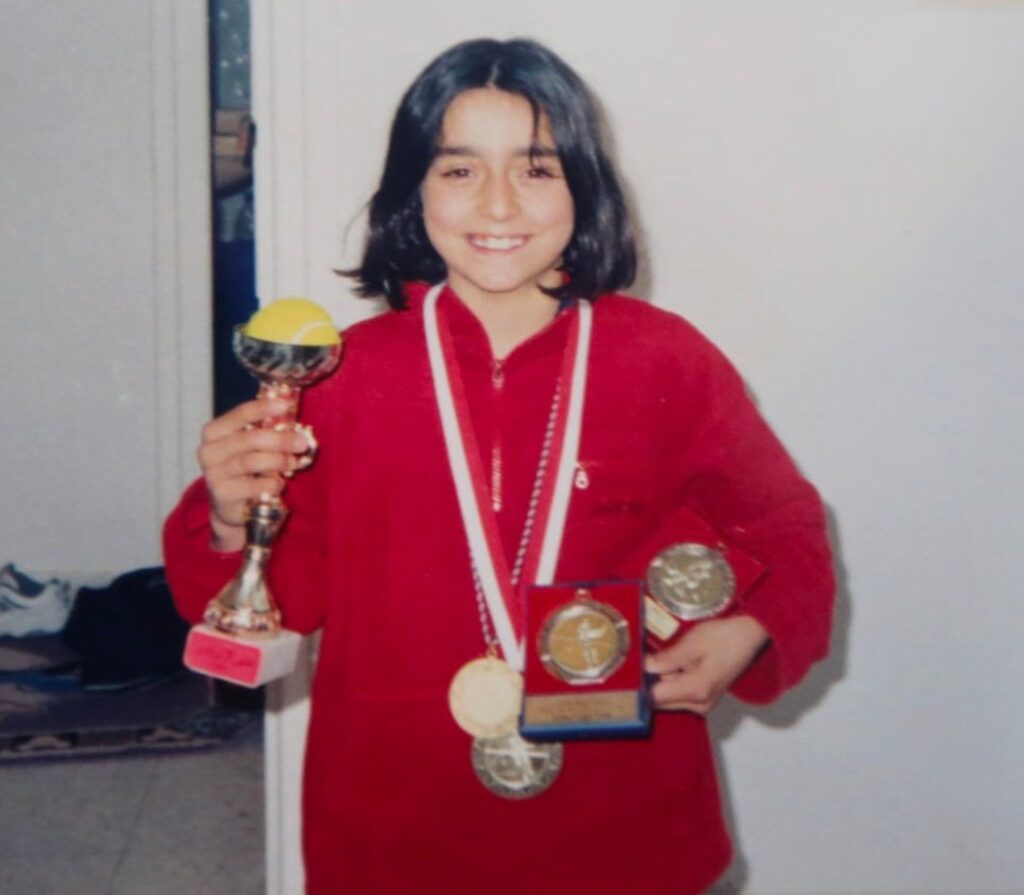
Even though she was steady in her tournament games, she suffered setbacks transitioning to professional tours but eventually found her grooves and has since established herself on top tournament tours as a formidable player to watch. She earned her first WTA 1000 title at the Mutua Madrid Open and has added more this year’s season, most recently in Berlin.
Becoming a finalist in the Wimbledon Championship ladies’ singles for Jabeur was nothing like strolling through the nicely designed park near her hotel in London. She’s had to fight her way to the top to become the first African tennis player to break the top 10 in singles to reach the biggest game of her career. In Wimbledon, she faced off and won against fierce competitors to reach the finals, including German Tatjana Maria 6-2,3-6,6-1 in the semifinals and Marie Bouzkova 3-6, 6-1,6-1 in the quarterfinals.
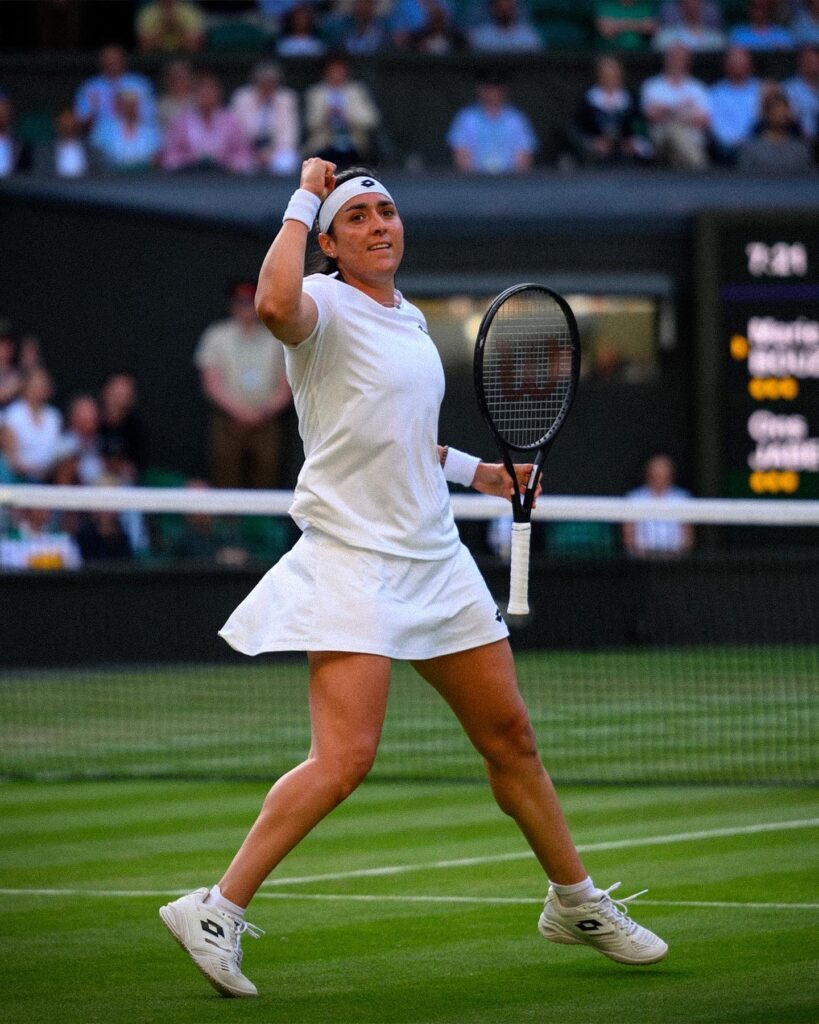
“Oueen Jabeur, you have throughly inspired Africa. We are proud that you have open the door. The who continent and beyond thank you your highness.”
She prepared for Wimbledon by practicing against Serena Williams. Her husband, Russian-Tunisian fencer Karim Kamoun, whom she married in 2015, also serves as her physical trainer.
Jabeur, who also plays soccer, thanked fan for supporting and cheering her on.
“Thanks you everyone who supported me since day one of this journey: my parents, my husband, my coach and my team. Without you, this would not have been possible at all. I love you all so much. I hope to have inspired Tunisia, the African continent and the Arab world throughtout my Wimbledon journey. I ‘ll be back on Centre Court. Keep dreaming young girls,” she posted on twitter after the game.
In responses, fans hailed her excellent consistent game and iconic drop shots.
“Congratulations from Salt Lake City, UT. My 18 year old daughter and I watched you and Elena Rybakina battle it out and it was such an inspiration to learn about you and the journey you’ve taken to get this far. You’ve got two new fans in America, wishing you the best!,” a fan posted.
“You have not just inspired Tunisians, Africans and Arabs but inspired a Pakistani as well. Supported you from day one. Best of luck for the upcoming tournament,” a Pakistani woman wrote.
Fans from across the African continent and Arab world where women and girls are often restricted or ban from participating in most sporting activities and where football is both the prominent national past time and professional sports, expressed gratitudes to her for being courageous to step outside of the box to pursue her professional dreams, thereby opening doors for other Africans and Arabs, women and girls, to walk through, while at the same time maintaining a sense of humility and her family values.
“You are such an inspiration to every kid in this region. thank you so much Ons, we love you,” a Arab fan wrote.
“Thanks Ons. You have honoured us with your sporting and moral level. we felt proud and revered. Thank you heroine,” wrote a Tunisian.
“Oueen Jabeur, you have throughly inspired Africa. We are proud that you have open the door. The who continent and beyond thank you your highness,” wrote a fan.
“Thank you for inspiring my daughter and being an amazing role model.”



